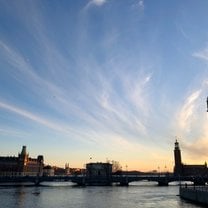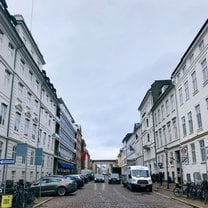
DIS – Study Abroad in Scandinavia
Why choose DIS – Study Abroad in Scandinavia?
DIS is a non-profit study abroad institution with locations in Copenhagen and Stockholm, offering semester, academic year, and summer programs taught in English. Established in 1959, DIS offers students enrolled in North American universities engaging and challenging coursework enriched by faculty who teach what they do, field studies, hands-on learning opportunities, and study tours across Europe. Cultural engagement opportunities integrate students into the local culture and students gain academic knowledge and intercultural skills to prepare for a globalized world. DIS students are usually undergraduate juniors or seniors from highly selective North American universities.
Website
www.disabroad.orgFounded
1959Diversity & Inclusion 💙
BIPOC Support
DIS is dedicated to ensuring that all students have a platform for discussion and dialogue regarding diversity abroad. The Diverse Identities and Students of Color Affinity Groups welcome students to gather, share stories and experiences, and contribute to a community surrounding the topic of diversity. They are facilitated by locals and have meetups throughout the semester.
LGBTQIA+ Support
Sweden and Denmark regularly top the list as the world’s most LGBTQIA+-friendly countries. At DIS, we are committed to building an open and supportive community. The LGBTQIA+ Affinity Group welcomes queer people and allies. Students, faculty, and staff are welcome to join the regular meetups, which take place throughout the semester. The meetups seek to provide spaces for students to explore their identities and build community, while also gaining local insights.
Neurodivergent Support
DIS is committed to supporting neurodivergent students though our collaborative and iterative approach. We encourage students to reach out, as early as possible, to healthaccommodation@disabroad.org to discuss their study abroad plans, share any accommodation requests and understand more about the DIS program options.
Accessibility Support
DIS is committed to supporting students with disabilities and chronic conditions though our collaborative and iterative approach. We encourage students to reach out, as early as possible, to healthaccommodation@disabroad.org to discuss their study abroad plans, share any accommodation requests and understand more about the DIS program options.
Impact 🌎
Sustainability
We are part of a sector that revolves around travel and thereby generates substantial carbon emissions. This fact makes it particularly critical to be intentional about our sustainability efforts, focusing on the capabilities of DIS as a Scandinavia-based, non-profit study abroad organization, to make the most meaningful impact we can. Through our Going Greener initiatives we are working on: reducing our carbon footprint, enhancing out carbon handprint by preparing students for a carbon-constrained world, and collaborating with peers to accelerate the field's response to the climate crisis. We also offer courses focusing on climate and sustainability.
Reviews
Programs
Displaying 1 - 3 of 3
Alumni Interviews
These are in-depth Q&A sessions with verified alumni.







Response from DIS – Study Abroad in Scandinavia
Hi Michael,
We regret that your summer abroad did not go as planned. All DIS students sign a code of conduct and understand that violations include sanctions up to and including dismissal. DIS, like U.S. institutions, take the code very seriously as an education tool and rarely dismiss a student from the program. Dismissal only occurs after repeated or very serious violations. More information can be found here: https://disabroad.org/summer/student-resources/student-conduct/
Best regards,
DIS – Study Abroad in Scandinavia